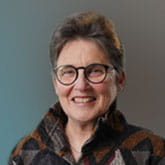The Primary Care First Model Options announced by the Centers for Medicare & Medicaid Services (CMS) on April 22 represent an innovative, voluntary program introducing five-year payment models. These models support the delivery of advanced primary care with special emphasis on complex patients with chronic illnesses—seriously ill patients—reducing administrative burden and focusing financial rewards on improved health outcomes.
Starting in 2020, this program will be offered only in 26 regions. Many of the regions are statewide, except for New York, Pennsylvania and Kansas, where specific greater urban areas have been defined.
CMS’s recognition of the central role that primary care plays in a high-functioning healthcare system is not novel. The Affordable Care Act firmly established CMS’s commitment to strengthening primary care by introducing payment models that support and strengthen the primary care delivery system. The programs have evolved over the years and clearly were staged to provide a crawl, walk, run approach. The Patient Centered Medical Home (PCMH) in its early phases required a team-based approach, and a commitment to continuous improvement and the availability of health information technology (HIT) tools that supported documentation and reporting of quality measures. Comprehensive Primary Care Plus (CPC+) introduced more evolved concepts such as chronic disease management, care management and risk stratification, as well as a multipayer reporting. It is reassuring to see that the Primary Care First Model Options continue to expand and evolve these themes.
Similar to CPC+, the program reflects a multipayer approach to care delivery and payment. It continues to offer flexibility and a great deal of latitude for physicians to innovate their care delivery approach to suit their practice style and patient population attributes. The program introduces additional compensation for physicians who will take on financial risk based on predefined quality and clinical outcomes. A second component of the model will incent providers specializing in advanced primary care, palliative care and hospice to care for high-need, seriously ill patients.
Even though much is to be learned about the program, several themes emerge from the CMS’s initial program descriptions:
- Reaffirmation of the central role that primary care plays in a high-functioning health system
- Recognition by CMS for a need to reduce administrative burden, as well as apply clinically meaningful measurement of outcomes and quality.
- The program has defined a subpopulation of primary care patients who have severe illnesses and require enriched and specialized services. By doing so, CMS is proposing a way to tackle the glaring issues of the quality and cost of care at the end of life.
- CMS has taken a crawl, walk, run approach to the shift of risk to primary care providers. The proposed risk structure in this program drives the required changes in practices without risking their existence if things go poorly.
- Even though not explicitly stated, it is clear that successful participation in this program requires the availability of evolved HIT systems, including advanced population health management capabilities.
At NextGen Healthcare, we are very much looking forward to partnering with our clients to support their participation in these and other emerging innovative programs.






